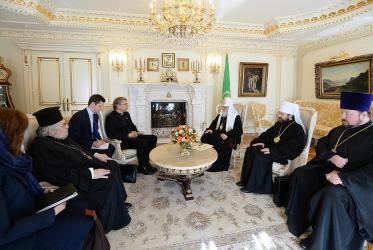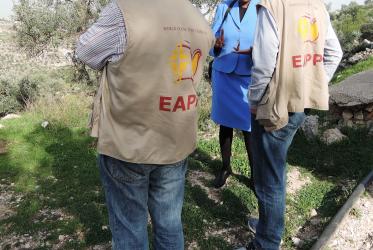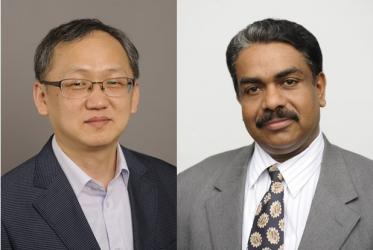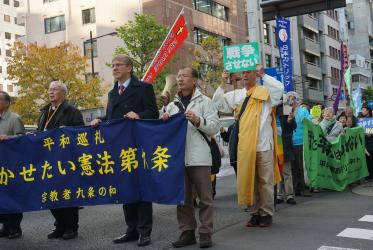Displaying 281 - 300 of 379
18 September 2015
Joint efforts to fight violence against children
18 June 2015
Walking to Emmaus in the Holy Land, and Sweden
12 May 2015
WCC delegation meets with Patriarch Kirill in Moscow
24 April 2015
A presence to accompany vulnerable communities
31 March 2015
Churches in Cyprus share aspirations of unity
26 November 2014












